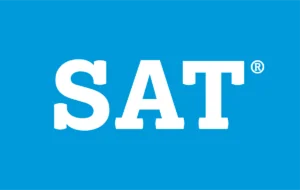The admissions process in most educational institutions has always been controversial. However, it isn’t enough to just express your concerns; people have to propose a solution to the problem. Let’s look at the most common answers based on the Quora thread.

✅ AI Essay Writer ✅ AI Detector ✅ Plagchecker ✅ Paraphraser
✅ Summarizer ✅ Citation Generator
Key Takeaways:
- There is a call for a more holistic approach that can better identify deserving candidates, particularly from less privileged backgrounds, and reduce the stress associated with conforming to a narrow set of criteria.
- Randomization could provide valuable insights into the actual impact of prestigious universities, while prioritizing societal impact could lead to a generation of students motivated to make significant contributions to the community.
- Comprehensive audits and investigations are proposed to ensure transparency and integrity, aiming to create a merit-based system that offers equal opportunities to all applicants, thereby restoring public trust in the fairness of college admissions.
College admissions have always been a topic of intense discussion, with many advocating for changes to make the process more equitable and effective. The current system, which often emphasizes standardized test scores, extracurricular activities, and personal essays, is seen by some as not fully capturing the true potential of all students. Critics argue that this approach can favor those with more resources, potentially leading to an uneven playing field. So, the community on Quora decided to weigh in on the question and share their opinions regarding the necessary changes in the educational system.
The Reasoning Behind Flawed Acceptance Procedures
The reasons for seeking change are varied and significant. One major concern is the fairness of the admissions process. There’s a growing belief that the current system might not always identify the most deserving or suitable candidates, especially those from less privileged backgrounds. Another point of contention is the high stress and pressure placed on students to conform to a narrow set of criteria deemed important by colleges, which might not accurately reflect their abilities or future potential.
The call for change is fueled by a desire to create a more inclusive, holistic approach that recognizes diverse talents and backgrounds. Reforming college admissions is seen as a step towards a more equitable educational system, where opportunities are not limited to those who can navigate the traditional pathways but are accessible to a broader range of students.
Exploring Randomized College Admissions
The concept of randomizing college admissions is gaining attention as a method to gather scientific data on the impact of attending various universities. This idea involves selecting students randomly, instead of the traditional criteria-based approach. The aim is to create a more diverse range of student experiences, which can then be analyzed to understand better how different educational environments affect student success and outcomes.
“It is widely recognized that the top schools get far more qualified applicants than they can accept; the admissions office then invests painstaking effort in selecting a subset of this population. I believe we could gain tremendously if, for example, 100 spots at MIT were set aside to be filled by random selection from the qualified student pool. This would immediately create a purely random treatment group (those accepted to MIT) and control group (those not accepted).”
Randomization in admissions could reveal important insights. For example, it might show whether attending a highly prestigious university significantly alters a student’s career path compared to attending a less renowned institution. This approach could challenge existing beliefs about the value of certain universities over others. Additionally, it provides a unique opportunity to study the effects of university education in a more controlled, scientifically valid way, potentially leading to improvements in how we assess and value different educational experiences.
Admissions Focused on Societal Contribution
A new perspective on college admissions proposes prioritizing candidates based on their potential to contribute positively to society. This approach suggests that universities should consider not just academic achievements, but also how a student’s unique skills and experiences might benefit the broader community. The argument is that by selecting students who are likely to make significant societal impacts, universities can play a crucial role in shaping a better future.
“A super well qualified candidate who will do just as well if not admitted should be rejected in favor of a less-well-qualified candidate who will actually make a bigger contribution to society if they come to MIT.”
However, this idea raises ethical and practical questions. It challenges the traditional notion of merit-based admissions by introducing subjective criteria for evaluating societal impact. Determining which applicants might contribute most to society can be complex and controversial. Critics argue that this approach could lead to biased decisions, favoring certain types of contributions over others. Despite these concerns, the concept offers a thought-provoking perspective on how universities might evolve to meet contemporary societal challenges and foster a generation of impactful leaders and innovators.

Diversifying College Admission Criteria
In the realm of college admissions, there’s a growing debate over the emphasis placed on extracurricular activities. Critics argue that too much weight on these activities can disadvantage students who may not have access to the same opportunities as others. This concern has sparked a call for a more diverse set of admission pathways, focusing more on academic specializations rather than extracurricular involvement.
“As for admissions criteria, that needs to be something determined by a group of qualified individuals. The same penalties should be applied to this council if their behaviour does not forward education and academic learning, but instead seeks to inhibit academic learning or otherwise bypass admissions standards.”
The idea is to tailor admission criteria to different areas of study. For instance, a student applying for a science program would be assessed more on their scientific knowledge and achievements rather than their involvement in sports or music. This approach aims to create a more level playing field for all applicants, ensuring that they are evaluated more on relevant academic strengths and interests. By doing so, colleges can foster a more inclusive environment, recognizing and nurturing talent in various fields without overemphasizing activities that may not be accessible or appealing to all students.
Tackling Corruption and Bias in College Admissions
The integrity of college admissions processes is a crucial concern, with growing awareness of potential corruption and bias. These issues can unfairly influence who gets accepted, sometimes favoring certain groups over others. To combat this, there’s a strong call for comprehensive investigations and audits within the admissions systems of educational institutions.
“Comprehensive investigation into the admissions process for a given educational institution, including historical matters for a period of 10 years or to the founding of the institution, whichever is shorter.”
This proposal aims to scrutinize the entire admissions process, from application reviews to final decisions, ensuring that each step is transparent and fair. By conducting thorough audits, colleges can identify and address any unethical practices, such as favoritism or bribery. The goal is to create an admissions system that is based solely on merit and fairness, where every applicant has an equal opportunity to succeed. Implementing such measures would not only enhance the credibility of institutions but also restore trust among students and the public in the fairness of college admissions.
Conclusion
The proposed changes to the college admissions process, including randomizing admissions, focusing on societal impact, rethinking the role of extracurriculars, and addressing corruption, aim to create a more equitable and effective system. These reforms could significantly alter the admissions landscape, making it more inclusive and fair. However, implementing these changes presents challenges, such as ensuring unbiased criteria and maintaining the integrity of the process. The necessity of these reforms is clear, as they strive to better align college admissions with the evolving needs of society and students. Ultimately, these efforts could lead to a more diverse and dynamic educational environment, reflecting a commitment to fairness and opportunity for all.
Follow us on Reddit for more insights and updates.





Comments (0)
Welcome to A*Help comments!
We’re all about debate and discussion at A*Help.
We value the diverse opinions of users, so you may find points of view that you don’t agree with. And that’s cool. However, there are certain things we’re not OK with: attempts to manipulate our data in any way, for example, or the posting of discriminative, offensive, hateful, or disparaging material.